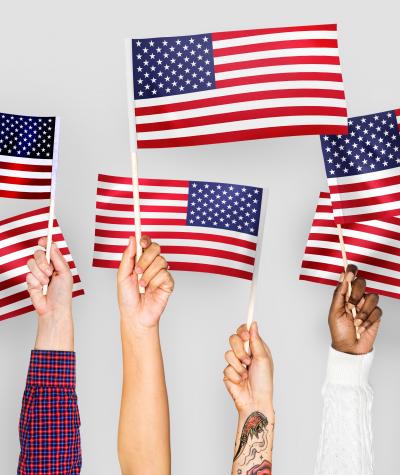States are often called the laboratories of democracy, but in 2018 American cities and counties were the major drivers of innovative campaign finance reforms.
Across the country, numerous localities adopted laws to expand citizen participation in the campaign process, increase transparency of political spending, and eliminate pay-to-play politics in local government. Many of these new policies were directly enacted by voters, reflecting widespread support for refocusing the political process back to the public at large.
Over the past year, the introduction of public financing for local campaigns was an especially popular reform. Three major cities—Baltimore, Denver, and Washington, D.C. —adopted legislation to create new public financing programs for candidates in municipal elections.
In Prince George’s County, MD lawmakers passed an ordinance to offer public matching funds to county office candidates. Notably, Denver’s new public financing program was approved by 70% of city voters, and will provide candidates with matching funds for local campaign donations at a 9-to-1 rate—the highest matching rate of any public financing system in existence.
In addition to the creation of new programs previously mentioned, New York City, Los Angeles, and Seattle made significant amendments to their existing public financing laws that will expand opportunities for citizen participation in local campaigns.
This November, New York City voters approved a package of city charter amendments, Ballot Proposal 1, that builds on existing strengths of the city’s longstanding matching funds program.
The new amendments, which were favored by over 80% of N.Y.C. voters, will increase the program’s matching rate to 8-to-1, allow candidates to raise a larger percentage of their total funding through the program, and ease qualification requirements for citywide office candidates to allow more people to run for office with public funds.
Greater transparency in campaigns was another focus of local legislation in 2018. At least nine cities passed laws this year to strengthen disclosure requirements in municipal elections.
In Arizona, residents of both Phoenix and Tempe overwhelmingly voted in favor of city charter amendments that mandate the disclosure of “original and intermediary sources of major contributions” used for expenditures in local elections. Voters in both cities approved the charter amendments against the backdrop of the Arizona legislature’s enactment of H.B. 2153, an anti-transparency measure that prohibits local authorities from requiring nonprofit entities to disclose their donors when the entities pay for election-related advertising.
The strong support of Phoenix and Tempe residents for the new charter amendments—both measures passed with over 85% of the vote—reveals a substantial disconnect between the public’s support for more political transparency and the state legislature’s priorities.
Similarly, localities on both coasts and in the Midwest moved to eradicate “pay-to-play” politics in 2018. Washington, D.C.; San Francisco, CA; and St. Louis County, MO among other locales, placed new restrictions on government contractors’ ability to give campaign contributions to local candidates and officials.
Earlier this month, lawmakers in Washington, D.C., a city with a long history of pay-to-play improprieties, approved legislation that bars current and prospective contractors holding or seeking large city contracts, along with the top executives of these contractors, from making any campaign contributions to elected officials involved with the contracts.
Across the country, the San Francisco Board of Supervisors passed a new ordinance that doubles the time period covered by local law’s prohibition on campaign contributions from city contractors and their affiliates.
As the new year approaches, it is important to reflect on the impressive gains that U.S. localities made in the area of money-in-politics reform over the last year. Many of the local reforms enacted in 2018 will expand public participation in elections, augment political transparency, and reduce opportunities for corruption for years to come. Looking forward, we hope the substantial momentum behind democracy reform at the local level will continue into 2019 and beyond.
